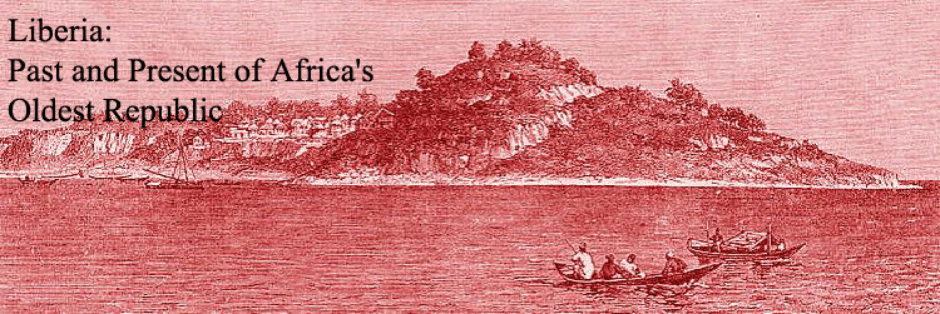Forced to stay inside with a contagious flu, I was watching CNN this morning when an interview with a Liberian artist from Atlanta, Georgia, was announced. Music producer LRoc – since it was him – is the son of a former Minister of Finance executed on the beach of Monrovia on that fatal day in April 1980. Then 16 years old, he fled with his American mother to the USA where he has been living for the past 29 years, building a career as a successful songwriter and music producer. In 2005 LRoc – aka James Elbert Phillips – was the co-winner of a Grammy Award for Album of the Year.

Though my interest in Liberia and Liberians has no limits, my knowledge of Southern hip-hop, crunch music and the R&B scene is virtually non-existent. After consulting Wikipedia and Google I knew more.
As a child during the 1970’s, James Elbert Phillips studied classical piano although he was not an enthousiast student – it was his parents’ choice. He was more interested in Steve Wonder, Prince and Parliament Funkadelic. He taught himself to play the bass guitar. Initially listening to funk bands such as Cameo, the Time, and the Brothers Johnson, later his musical tastes broadened including Count Basie, Thad Jones, Chaka Khan, Chick Corea and Herbie Hancock.
LRoc – aka James Elbert Phillips – is now a successful songwriter and music producer, working with Jermaine Dupri‘s So So Def Recordings. He has co-written and co-produced many singles like Janet Jackson‘s “Call on Me” and “So Excited“, Mariah Carey‘s “Get Your Number“, Murphy Lee‘s “Wat Dat Hook Gonna Be”, “, LL Cool J‘s “Control Myself,” Nelly‘s “Grillz” and Usher‘s “Yeah'” which won him the Grammy Award in 2005.
One of the most interesting articles and interviews I read about him was published by Starpoynt Magazine. A more technical article – but difficult to read for a non-initiated layman (sorry ladies!) like me – can be found here. For an easier to read 2008 interview with the man behind Jermaine Dupri click here. Also in 2008 the Sunday Paper published an interview with him.
Why do I focus attention on him?
There are three reasons. One is that it shows that there is no need to associate Liberia with only bad news. The publicity handicap, however, is that “Good news is no news.”
The second reason is that it once again shows that creative and precious Liberian human resources contribute more to developments abroad than at home. LRoc is of course far from the only one, there are tens of thousands of his compatriots residing in the USA. Of course I respect the right of individuals to choose their domicile where they want, but their country needs them.
I also understand individual Liberians to decide to live and earn a decent living in e.g. the USA, where they enjoy the rule of law and other basic human rights which in Liberia can easily be jeopardized – as recent history has shown. To expect them to give up a guaranteed peaceful existence in the USA for an uncertain future in Africa’s Oldest Republic, is not realistic. But – and that is my third reason – this conclusion increases the urgency to rebuild Liberia, to establish the rule of law, and to create a society with sufficient jobs and equal opportunities for all. If that is not guaranteed, they sure won’t return to Liberia.
It is a painful but realistic conclusion.
